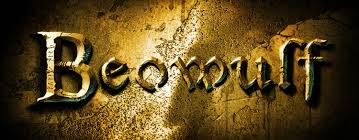OVERVIEW OF THE UNIT—NARRATIVE: This unit spans the Old English & Medieval Periods, from 449-1485. Students will experience the earliest formations of Britain’s political, social, and linguistic formation from the earliest invasions of the Anglos, Saxons, and Jutes. Students will place major historical events in perspective with the major works and genres of the Anglo-Saxons to be studied: Beowulf, the elegiac poem, and the riddle. Students will experience the defining elements of Britain’s political, social, and linguistic society during the vast Medieval Period. Students will place historical events and social developments in perspective with the major works and genres of post-Norman England to be studied: the frame story, the ballad, the church drama, and the romance.
Essential Questions:
· What ideals did the Anglo-Saxons hold in esteem, and how does Beowulf display these ideals?
· What poetic conventions did the Anglo-Saxons favor, and how is this evident in their elegiac poetry and the riddle?
· What differences exist between the classical and modern constructs of good and evil?
· Why is Chaucer considered the Father of British Literature? Why is his work still relevant today?
· How are ballads related to the modern song?
· What is allegory, and how does the church morality play make use of its constructs?
· What elements define the Medieval romance, and how does the genre relate to the classical epic?
Essential Questions:
· What ideals did the Anglo-Saxons hold in esteem, and how does Beowulf display these ideals?
· What poetic conventions did the Anglo-Saxons favor, and how is this evident in their elegiac poetry and the riddle?
· What differences exist between the classical and modern constructs of good and evil?
· Why is Chaucer considered the Father of British Literature? Why is his work still relevant today?
· How are ballads related to the modern song?
· What is allegory, and how does the church morality play make use of its constructs?
· What elements define the Medieval romance, and how does the genre relate to the classical epic?

